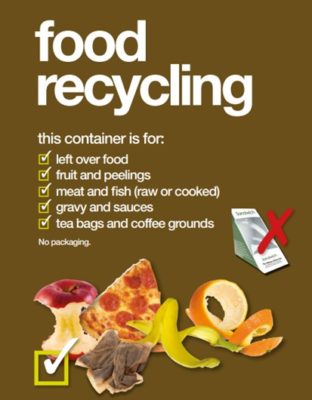Overview
- Being energy friendly
- Heating
- Waste
- Water
- Cycling in Oxford
- Living sustainably in Oxford
- Sustainable gifting
- What else you can do to make Exeter more sustainable?
Being energy friendly
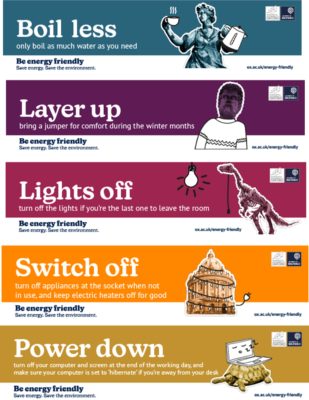
For more information see the University of Oxford’s Be Energy Friendly page.
Heating
Whatever your heating system, follow these rules to stay comfortable and save energy this autumn and winter.
- Aim for 19-20°C. This is the sweet spot for comfort and energy efficiency. Overheating wastes a surprising amount of energy and can make rooms feel stuffy.
- Air Out, Don’t Chill Out. Need fresh air? Open your window wide for 5 minutes, then close it completely. This quickly ventilates the room without losing all its heat.
- Adjust When You Leave. When your room is empty, lower the heating. For traditional radiators, use the frost-protection setting (*). (Note: For underfloor and the Ecosync systems, follow your specific guide below).
Exeter College has various different heating systems from traditional gas boilers to modern solar thermal heating and both ground- and air-source heat pumps. Have a look at your site to understand how our heating works.
Turl Street
Both properties have manual thermostatic radiator valves with the dial ranging from * to 5/6.
- For a comfortable room, set your radiator dial to 3.
- Pro-Tip: Turning the dial higher does not heat the room faster, it just sets a higher final temperature.
- Leaving the room? Turn the dial to the snowflake symbol (*) to save energy and reduce emissions.
For more information on how to use Ecosync please refer to the explainer guide and the boost explainer guide.
Cohen Quad
These room are equipped with an underfloor heating system. It works by gently warming the entire floor slab, which then stores and radiates heat evenly throughout the day.
The key rule for underfloor heating is to “Set it and Forget it.”
- Set the wall panel to 19-20°C. This will keep your room consistently comfortable.
- Don’t make large frequent adjustments. It won’t make your room heat up quicker. Set it to a target temperature and leave it.
Be Patient: It can take several hours for the room’s temperature to change after you adjust the setting. Avoid making frequent, large adjustments.
Exeter House
Exeter House has a mix of gas boilers, an air-source heat pump and ground-source heat pumps. This means that some buildings have underfloor heating whereas others have traditional wet radiators. This means using a mix of the Turl Street and Cohen Quad approaches to heating.
SC 12-14 and Stapeldon House
These rooms are all on the Ecosync system.
Everything is controlled via the QR code in your room. Scan it to:
- Adjust your room’s temperature.
- Boost the heat out of hours.
Leaving your room? Make sure to set your status to ‘Away’ on the app. It’s a simple click that makes a big difference to our energy use.
For more information on how to use Ecosync please refer to the explainer guide located on your notice board.
Abingdon Road
Both properties have manual thermostatic radiator valves with the dial ranging from * to 5/6.
- For a comfortable room, set your radiator dial to 3.
- Pro-Tip: Turning the dial higher does not heat the room faster, it just sets a higher final temperature.
- Leaving the room? Turn the dial to the snowflake symbol (*) to save energy and reduce emissions.
Waste
Help us reduce waste at College by following these three simple rules before you throw anything away.
- Reduce & Reuse First Before buying new, could you borrow the item or find it second-hand? Don’t bin unwanted things that are still useful—donate them instead!
- Recycle What You Can If the item can’t be reused, check the recycling rules to see if it can be given a new life.
- General Waste is the Last Resort If it absolutely can’t be reused or recycled, make sure you use the correct bin (e.g., general waste, food waste, batteries).
Batteries
We accept all types of used batteries – from standard AAs to rechargeable ones from phones, laptops, and shavers.
Drop-off points:
- The Lodge (in the battery bin)
Warning: Never put batteries in a general waste bin. They contain hazardous materials and are a fire risk. Please use the designated bins.
Packages
Think Before You Click: A Guide to College Deliveries
The Lodge receives hundreds of packages each term, creating a mountain of packaging waste and adding to city traffic.
How you can help:
- Order Less: Could you buy it locally in Oxford instead? Supporting local shops is a great way to reduce your impact.
- Group Your Items: When ordering online (e.g., from Amazon), please choose the option to send your items in a single, consolidated package.
Fewer packages mean less waste and fewer polluting delivery vans!
Unwanted Clothes, Accessories, Shoes, Books and Small electricals
Don’t Bin It, Donate It!
Give your unwanted clothes, books, shoes, and small electricals a new life.
At the End of Each Term: Look for the British Heart Foundation collection boxes. We’ll place them in the JCR and MCR for an easy way to clear out your room before you leave.
During Term Time: You can donate items directly to local charity shops. Some nearby options include:
- Oxfam (Broad Street)
- Oxfam Bookshop (Turl Street)
- British Heart Foundation (St Ebbes Street)
Please remember: These items are valuable to others. Keep them out of general waste and recycling bins.
If you have small approved electrical items (e.g. hairdryers) that are broken or no longer work, please get in touch with maintenance-servicedesk@exeter.ox.ac.uk who will dispose of the item correctly.
Turl Street, Cohen Quad, Stapledon House and Exeter House
In your room you will find a black general waste bin and a grey dry mixed recycling (DMR) bin. In your kitchens you will find a food waste caddy. Please use these different waste streams and adhere to the waste rules.
Food Waste
The Scout’s empty this bin
These bins are for food waste only.
This includes:
Left over food
Fruit and peelings
Meat and fish (raw or cooked)
Gravy and sauces
Tea bags and coffee grounds
DO NOT put packaging in here even if the label states it is compostable.
Dry Mixed Recycling (DMR)
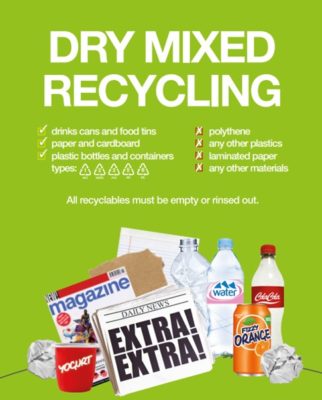
The Scout’s empty this bin
These bins are for all recyclable materials but not for glass
This includes:
Drinks cans and food tins
Paper and carboard
Plastic bottles and containers of the type:
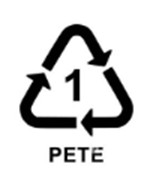
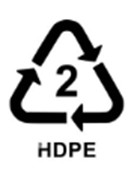
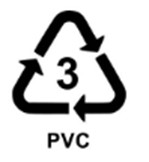
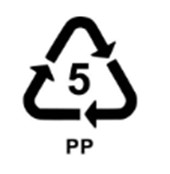
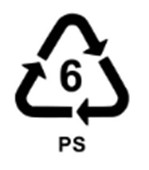
DO NOT put any other plastics (apart from the ones specified) including soft plastics (polyethene), laminated paper or any other material in this bin. All containers must be EMPTY.
Glass Recycling
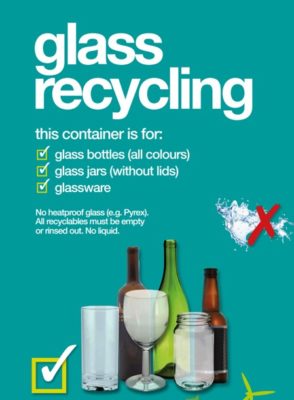
You are responsible to take your glass to the glass bin
This bin is for glass only.
This includes:
Glass bottles (all colours)
Glass jars (without lids)
Glassware
DO NOT put heatproof glass (like pyrex) in this bin. All containers must be EMPTY.
General Waste
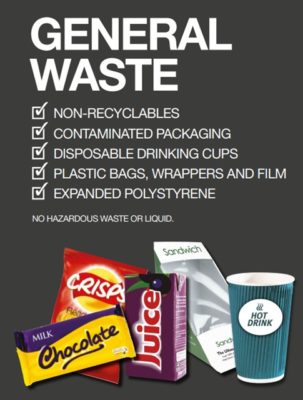
The Scout’s empty this bin
This is for generic waste that cannot be sorted into the above bins.
This includes:
Non-Recyclables
Contaminated packaging (e.g. Pizza boxes with oil/grease on them)
Coffee Cups that have an internal plastic lining (rip cup to see internal lining)
Soft plastics (e.g. wrappers, film and plastic bags)
Polystyrene
Plastics that are not the numbers outline above in the DMR section
Abingdon Road
Waste is collected via ODS. Please refer to this page for the separation rules – they are different from the rules referred to above!
If you have textiles e.g. clothes, shoes and bed linen then you can arrange a kerbside collection with ODS at, Clothing and household textile collections by Recycling Solutions | Oxford City Council.
If you have any questions about where to dispose of items, please email sustainability@exeter.ox.ac.uk
Water
Last year, the College used 21,253 m³ of water, a volume that would fill the Rosenblatt Pool 35 times over and was responsible for 7.20 tonnes of our carbon emissions.
Every drop counts towards reducing this environmental impact. Please remember to:
- Avoid leaving taps running – when washing up or brushing your teeth.
- Choose the eco-friendly washing cycle.
- Report any and all leaks in taps, toilets, or showers to Maintenance: maintenance-servicedesk@exeter.ox.ac.uk
Cycling in Oxford
Cycling is a popular and quick way to get around Oxford. We have bike storage at the main site and our various accommodations. If you are bringing a bike or plan to buy one when you arrive in Oxford, you will need to register your bike at the Lodge. We also recommend that you register your bike on the national Bike Register at one of the University’s events and that you get a Strong D-lock and good bike lights, both of which are available at a discount from the University. You may also want to consider renting a bike daily or termly through OxBikes.
If you want to learn to ride with confidence, the University provides up to six hours of free one-on-one bike training. There is also a helpful online map of low-traffic cycle routes and the University has further information and resources to help keep your bike in good repair and secure. Exeter also offers a termly bike day with a bike doctor and the Lodge has a repair kit and bike pumps you can borrow as well.
Living sustainably in Oxford
For detailed guides on how to live sustainably in Oxford see Living Sustainably in Oxford and Sustainable Consumption Guide. You can also check out the student union’s Garden Guide if you would like to explore some green spaces.
Some simple tips are to:
- Go small and local – support small businesses in your local community. Buy your gifts locally and more sustainably using the Oxford Local Businesses list from the Bodleian Libraries.
- Check out the library of things and repair cafes – there are various options for borrowing items such as bike repair kits from the Lodge, or having a look at SHARE Oxford which has an overview of repair cafes and things you can borrow in Oxford.
Sustainable gifting
- Go Fairtrade: crafts, wine, chocolate, flowers, cosmetics, olive oil, and other Fairtrade products are perfect gifts. You can find a wonderful variety in Oxford Fairtrade shops. You’ll be giving twice, including the producer who earns fair payment for their products
- Support a worthy cause
- Buy a gift with added value such as products made from recycled ocean plastic, purchased from a charity shop or social enterprise
- Give eco-friendly items that will support a more sustainable lifestyle, such as a bee house or reusable products
- Give an experience such as tickets to the theatre
- Use a swapping platform to give away your old toys and receive pre-loved ones
What else you can do to make Exeter more sustainable?
Three further ways in which you can help Exeter become more sustainable are:
- Help us save energy by following the ‘Be Energy Friendly’ guidelines
- Reduce the amount of waste you produce by planning ahead for what you need each term and making use of the local charity shops to donate and purchase items.
- Get involved by contacting your JCR or MCR Environment Rep and the Sustainability Officer.
For more information on any of the above please email Juliet the Sustainability Officer at sustainability@exeter.ox.ac.uk.
Lastly, if you are interested in getting involved in sustainability in Oxford more widely you can have a look at the Students Organising for Sustainability Website, the Sustainable Students Oxford Website, as well as the Oxford SU Sustainability Hub.
